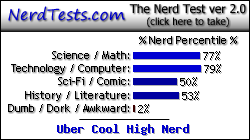I have said a few times that in the computing industry, we often see a proliferation of multiple tools responding to the same need, which starts to confuse consumers (beginning with those in software development and trickling down to the average user). A few years into the proliferation cycle, the winners start buying up the competition or incorporating their feature sets into their own product. This consolidation phase builds a platform for future growth and provides an implicit standardization mechanism for the industry as a whole.
It is interesting, however, to notice how much Google has done in recent years to insert itself into markets previously untouched by Google. They moved from just web search at the beginning into various web-based software segments with rich applications like Gmail and Google Docs; Analytics and Web History were organic developments along the web search line, but nevertheless revolutionary for us consumers of the web. Google internally develops all kinds of solutions catalyzing its use of hardware and software with its BigTable distributed storage system and MapReduce distributed computation engines. It supports open source development with Google Code resources and dynamic web applications testing and deployment with the AppEngine. It has developed a few programming languages from scratch and made countless improvements to other languages. And it has provided a huge percentage of the development team at Facebook, in the way of former Google employees.
Google is also leading the way in terms of clean and effective user interfaces! I logged into my Blogger account today to find that it, too, has been refreshed to the new Google interface, which is more compatible with touch-screen devices and includes lots of HTML5/CSS3 glory. Compared to the new Analytics interface, I am loving the new Blogger interface. Calendar has taken some getting used to, but I'm comfortable with it now. I am glad they haven't gone the way of the Ribbon, however. Speculations about key features in Windows 8 sound like there are plenty of improvements and the Ribbon may actually become more practical. Microsoft is catering to a different audience than Apple, and I think the divergent paths here settle the age-old niche argument. My feeling about OS X Lion (10.7) is that it is becoming more of "grandma's OS" and even less useful for the creative community than before. FinalCut
Cloud computing, on the other hand, is soaring like crazy with so many providers out there that it is extremely difficult to keep track of them all. Amazon alone is a best with an elastic-everything offering from traditional computing units and storage units to MapReduce units and statistics and monitoring. I am glad I stuck with Rackspace Cloud, however. A quick test of deployment speed and simplicity between Amazon's EC2 and Rackspace CloudServers for Windows Server 2008 R2 64-bit proved Rackspace as the clear leader in both categories. It was both up and running sooner and easier to access. No configuring EC2 security groups or downloading cryptographic keys and a far simpler web-based management interface than EC2. So if I need a Windows machine elsewhere in a snap, Rackspace is my 15-minute solution. I can also set up an automated deployment process for myself using my existing linux CloudServer to host necessary files on the Rackspace Cloud and take advantage of free internal transfers; I would essentially become my own mirror and therefore only leave my expensive Windows server ($.08/hr) up when needed, configuring only what is necessary on the fly.
Well, this is a long article for a Saturday morning, so we'll just leave it all at that. Happy computing!
Registered Linux User #370740 (http://linuxcounter.net)




No comments:
Post a Comment